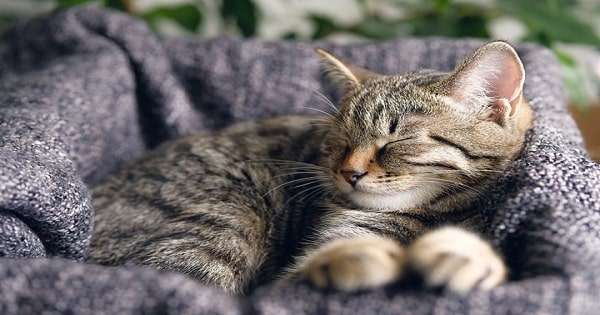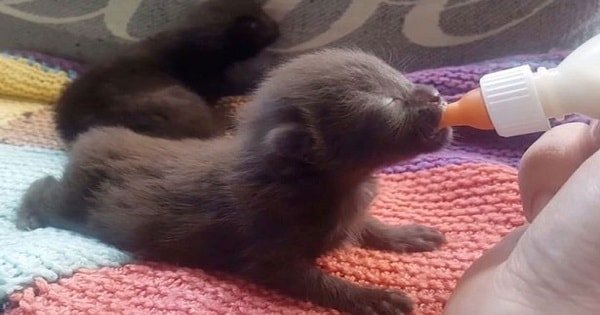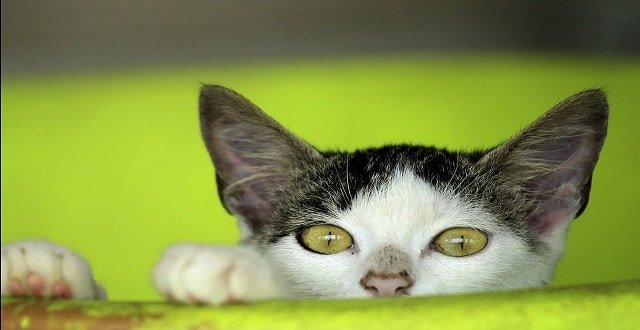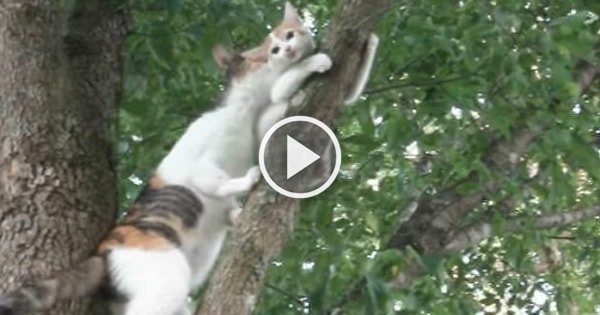PEABODY, MASSACHUSETTS — When Margaret Kudzma set out to find her missing cat, Mini Max, last summer, she stumbled upon a secret world that very few people realize is there: a colony of feral cats.
The cats, at some point either lost or abandoned by their owners, had been left to survive the elements on their own outdoors, without food or shelter. Their offspring were all born wild.
Kudzma had noticed cats wandering around her Peabody neighborhood before, but she soon found out that brief glimpse was merely the tip of the iceberg — most feral cat activity takes place at night, as many want little to no contact with humans. Most people are completely unaware of their wild neighbors, though such colonies are common in both Peabody and Salem, she said.
Now Kudzma has launched her own nonprofit organization, The Rescue Business, with the hope not only of feeding and vaccinating the cats, but also controlling their population by getting them spayed or neutered. The Rescue Business also supports multiple caregivers who feed and trap the cats, and also works to increase awareness of the dozens of homeless felines living outdoors.
Since August, Kudzma and others have counted at least 50 adult cats and kittens, 18 of which have been adopted or are in foster homes.
Currently, Kudzma and nine volunteers care for 80 or more feral cats on a daily basis, providing them food once a day. At least 60 of these cats live in Salem and in Peabody, she said.
The organization has also built a total of 28 outdoor shelters to provide a warm place for the cats to sleep.
Not your average pet
Central to the life of feral cats is realizing that, though they may look like pets, they have spent most of their lives outdoors and cannot be socialized or domesticated easily — this means they can’t be adopted. Most don’t make good pets while many have been born outside to a stray mother, or have been outside for generations.
“It would be like bringing a raccoon into your house,” Kudzma said. “They’re just fearful of humans. The most you can do is socialize them to one person.”
There are few options for these cats. If brought to a no-kill shelter, they may have the chance to live out their lives in that shelter. Other shelters will euthanize the cats which can’t be adopted. Often the best thing to do is leave them be in their habitat, Kudzma said.
However, that doesn’t mean the cats living outside are not cared for.
The Rescue Business uses trap-neuter-return, or TNR, methods to to control the population and also vaccinate and care for the cats. All of the cats are spayed or neutered. Those who seem adoptable — usually cats that were only just recently abandoned or lost — are given foster homes. Others are returned back into the wild after treatment.
Kudzma said she and her caregivers also continue to monitor all of the colonies. They watch to see if any new cats have come in and make sure the existing cats are well.
Often, monitoring the cats means relying on the use game cameras. Since many of the cats can be so elusive, tracking them down can be difficult.
What Kudzma wants the community to know about feral cats is that unwanted behavior, such as fighting, does stop once a cat is neutered. Ferals also productively help to cut down on the rodent population.
Pet owners who have outdoor cats and leave food outside for them, she adds, may actually be feeding many many more cats than their own.
Do you want to help?
For those whoa re interested in helping feral cats, Kudzma said, The Rescue Business is always looking for more volunteers, from those willing to help with the actual cat care to those willing to raise funds or work on the organization’s website.
Sadly, Kudzma’s cat Mini Max is still missing. But if anything good could come from his disappearance, Kudzma said, “it’s been the chance to ease the suffering many other cats that no one knew were there.”
There are no coincidences when love is leading the way!
Follow The Rescue Business on Facebook!






